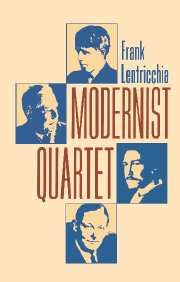2 - Lyric in the Culture of Capital
Published online by Cambridge University Press: 23 November 2009
Summary
Writing in self-willed exile to an ex-student from a cottage in Beaconsfield, England, which he called “The Bung-Hole”; still deep in literary obscurity – though not quite as deep as the obscurity he had experienced in America in the previous twenty years; writing in November 1913, with his first book out and warmly reviewed by the right sort of people, Ezra Pound among them, and with a second and maybe even a third book waiting in the wings, Robert Frost hatched the plot of his return to the United States as the first step in his cunning pursuit of the fame that would eventually become the means of supporting himself and his family. And more: he would court fame because it would provide the material base for the realization of a desire he publicly announced in the 1930s and to which critics on the Left might have responded sympathetically – but didn't. (Frost came up through some pretty joyless conditions.) That desire, at once induced by and mainly prohibited in Frost's American culture, Yeats – who never earned Frost's right to it – called the desire for “unity of being.” Other high modernists would weigh in with other, equally romantic, phrases for a need that represented not only longing for another and better – because integrated – kind of life, but also criticism of the social ground on which they stood.
- Type
- Chapter
- Information
- Modernist Quartet , pp. 47 - 76Publisher: Cambridge University PressPrint publication year: 1994



